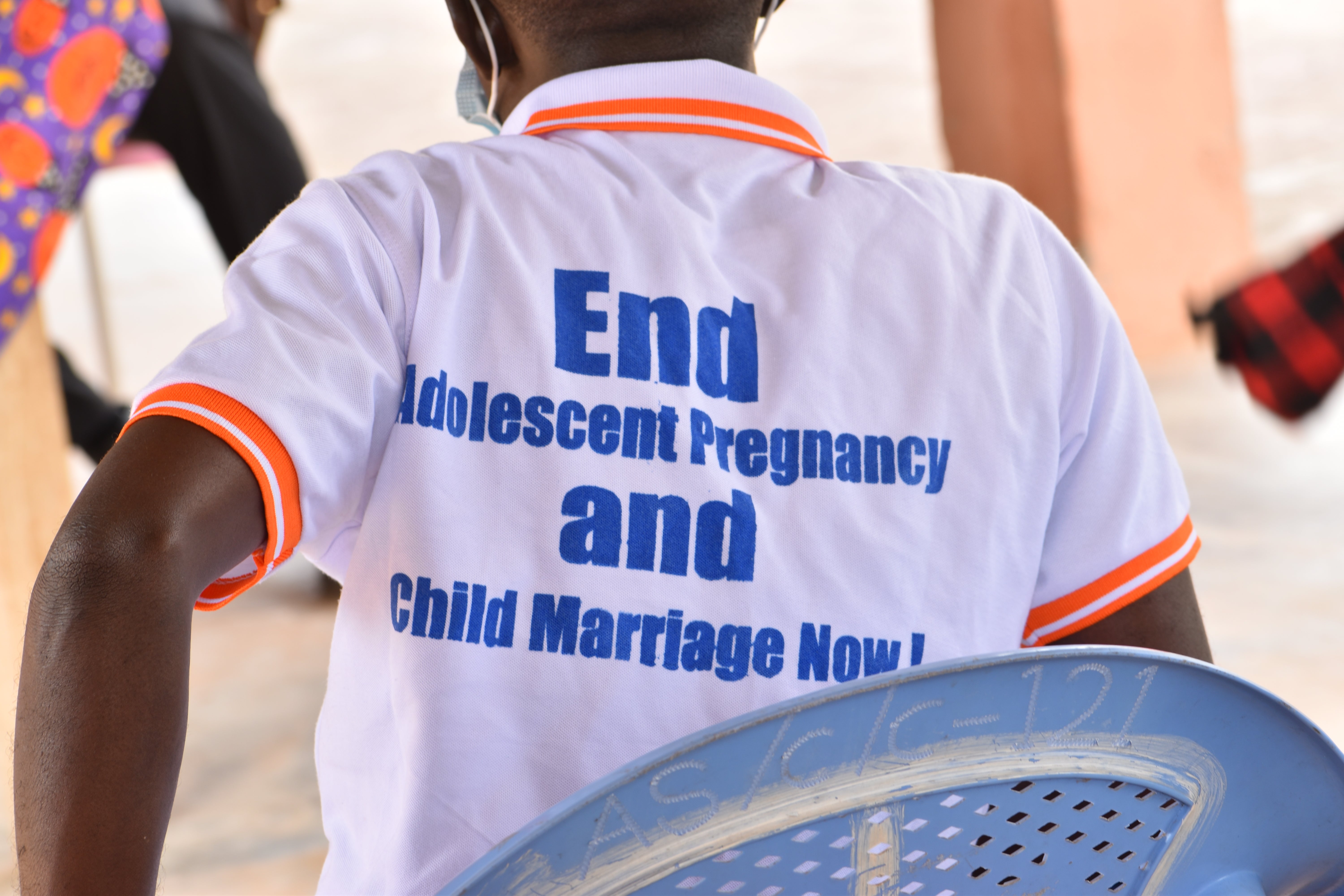Nana Koranteng Amoako is the chief of Assin Asamankese, a farming community located within the Assin South district of the Central Region of Ghana. The region recorded a total of 10,301 adolescent pregnancies in 2020, as reported by the Ghana Health Service
Nana Koranteng who is poised to make a difference and change the narratives of adolescent pregnancy in the Central region made a decision to join and lead the Community Parents Network Association Group (COPNAG) established by the Department of Gender in 2018. His aim is to support efforts to curb adolescent pregnancies in his community and ultimately in the region. The concept of COPNAG as a community-owned intervention aimed at improving parental skills in a bid to enhance parent-adolescent relationships was facilitated by the Department of Gender in partnership with UNFPA, under the Canada-funded UN Joint Programme on Empowering Adolescent Girls.
“Currently, our group has 150 members comprising parents who are also influential people in the community. They include assembly members, Christian and Islamic leaders as well as Traditional Authorities We meet every Sunday afternoon because it is the only day we do not go to the farm”, Nana Koranteng noted with pride.
The core of their weekly engagements revolve around parent-child communication on gender-based violence (GBV) and sexual and reproductive health (SRH) issues, including menstrual hygiene management. “The capacity building we received in COPNAG has been very empowering, especially for me as a father of an entire community. I have been able to improve communication with my daughter so much that she has no problem telling me she is in her period and needs support to buy sanitary pad. That is my key achievement as a father and a Traditional Leader”, Nana Koranteng added.
As a step-down approach to engaging more parents, Nana Koranteng in agreement with his group assigns members to specific gatherings and existing structures weekly. For instance, a COPNAG member who is a muslim leader regularly meets with women in mosques before their main sermons to further orient them on positive parent-child communication on SRH and GBV. She then reports back to the group.
When Nana Koranteng was asked what was unique about the parents advocacy group compared to other groups in the community, Nana Koranteng remarked, “There are many other groups in this community but what they mainly focus on is contributing for funerals, naming and marriage ceremonies. Others do a few outreaches too. However, what makes us unique is our training on parent-child communication on SRH and GBV. We noticed that more parents need this information in order to respond to the needs of their adolescents. We will therefore encourage UNFPA to support the establishment of COPNAG in every community in Ghana”.


